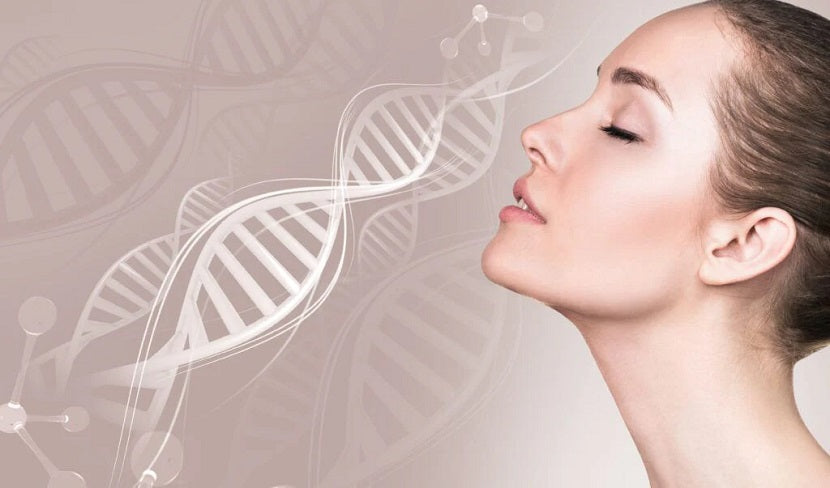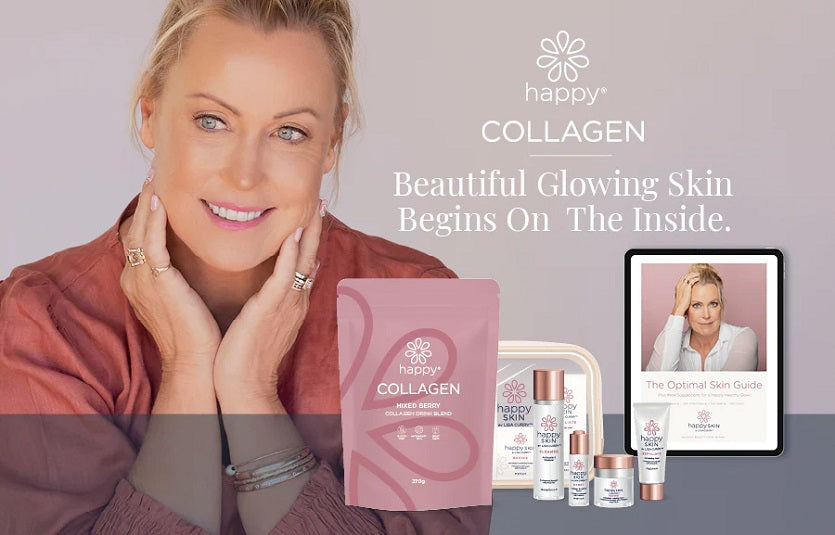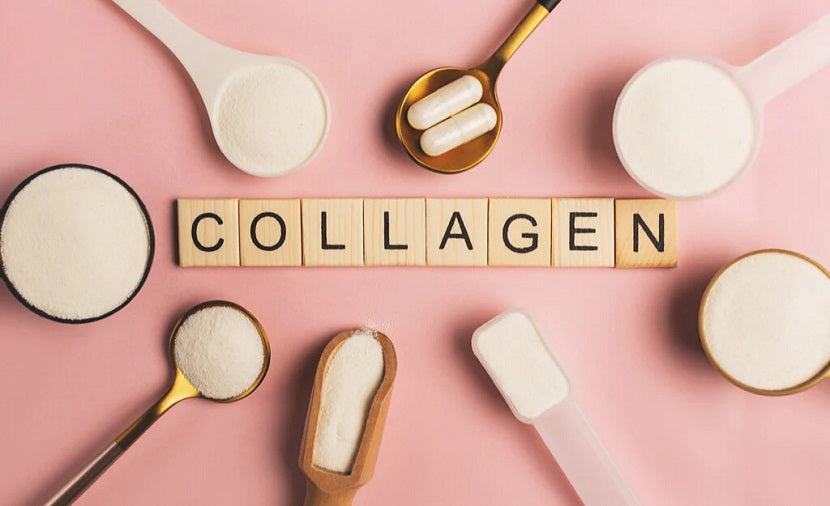Does Stress Break Down Collagen Production?
By Renee Grandi

Collagen is the protein that conjoins your connective tissues, think; skin, bone and joints. Let’s break this down simply to begin with. Stress increases your hormone cortisol, cortisol reduces collagen utilisation/formation and you need collagen to look fresh, feel strong and reduce pain. In short, collagen and stress are directly linked. We all know that stress is something to prioritise in life, here’s another reason to nourish your collagen production if you’re stressed… perhaps this one is out of vanity, nevertheless, it’s worth knowing.
You may already know that sun damage, smoking, poor diet, dysregulated gut health and chronic inflammation can deplete collagen. Now, there’s more research on cortisol (our stress hormone) and how it impacts collagen. Let’s dive in.
What Are The Effects of Cortisol On Collagen?
- Cortisol is our primary stress hormone
- Cortisol is regulated by the adrenal and pituitary glands
- Prolonged elevated cortisol has adverse effects on the skin
- Cortisol can downregulate collagen type 1 expression
- Collagen type 1 is essential for healthy skin, bones and joints
- Cortisol may inhibit transforming growth factors (TFG) that encourage skin remodelling
Click on the link if you want to learn more about the benefits of collagen.
Cortisol is a steroid hormone produced by the adrenal glands (sitting on top of your kidneys) and is triggered by physical and mental stressors. This is coordinated in humans by the hypothalamus-pituitary-adrenal (HPA axis), the HPA axis interacts with your ovaries and thyroid too. It’s one big hormonal manager, constantly identifying whether you are safe or not, then prioritising appropriate hormonal synchronization.
“Your body isn’t going to prioritise skin health over what it perceives as danger.”
- Renee, Naturopath & Nutritionist
You have to give your body credit, it’s pretty smart. I, too, wouldn’t want my skin or collagen production prioritized over my fight or flight response when danger is amidst! The problem with this, is that we are constantly in a fight or flight stimulation…thanks, 21st century and this stress can cause wrinkles and a range of other issues. Stress can be; dealing with traffic, hormonal changes, relationship issues, poor work environments, increased exercise regimes, or a chronic illness like hyperthyroidism and Cushing's syndrome.

How To Improve Collagen Production Naturally
To prioritise your collagen production, you’ll need to focus on reducing your stress/cortisol. That, or also taking collagen peptides (which is also incredibly important for a healthy cortisol collagen relationship).
A 2021 study (Minjung Chae, 2021), in the International Journal of Molecular Sciences, investigated the effects of cortisol on collagen type 1 production, gene expression and protein levels. It concluded that cortisol signalling decreases mRNA collagen type 1 sequencing and that collagen peptides recover cortisol-dependent inhibition of collagen production. Now, that’s what I like to hear… collagen peptides are great if you’re under stress and don’t want to deplete your body of collagen.
“It concluded that cortisol signalling decreases mRNA collagen type 1 sequencing and that collagen peptides recover cortisol-dependent inhibition of collagen production.”
They also analysed co11a1 mRNA transcription with collagen hydrolysate peptide supplementation and stipulated mRNA dysregulation can be reversed in the skin's dermal layers. This is why collagen peptides are termed ‘nutraceuticals’, given that oral ingestion can fundamentally alter the skin, bone, blood vessel and joint tissue integrity.

Can Stress Cause Wrinkles?
Psychological stress can play a huge role in the onset of skin conditions such as psoriasis and atopic dermatitis, as cortisol triggers inflammatory cascades within the skin matrix and immune system. The skin subsequently becomes compromised and downregulates wound healing and exacerbates premature ageing. The question is: can stress cause wrinkles? Collagen peptide supplementation has been shown to significantly improve skin elasticity, moisture, barrier function, crow's feet, plumping and reduce joint/bone inflammation.
Collagen peaks at 80% collagen type 1 in your youth, with a gradual decline as you age, particularly, post-menopause. The cellular response to collagen is extremely dependent upon your adrenal gland function and hormones. Your brain and skin are constantly communicating with feedback mechanisms and crosstalk. There are major pathways that negatively affect skin functions and one of those is chronic stress and elevated cortisol levels.
If this relates to you, we recommend Happy Calm and Happy Collagen as the perfect combination to soothe both concerns. You can also read more about how to increase collagen production through nutrition and how to regulate your nervous system with daily deep breathing exercises.
Please always feel free to reach out to the Happy Healthy You team if you have any questions.
REFERENCES
Chen Y & Larga J. (2014). Brain-Skin Connection: Stress, Inflammation and Skin Aging. Inflammation Allergy Drug Targets, Jun; 13(3): 177–190.
Chae et al. (2021). AP Collagen Peptides Prevent Cortisol-Induced Decrease of Collagen Type I in Human Dermal Fibroblasts. International Journal of Molecular Sciences. Apr 30;22(9):4788.
Athimulam et al. (2020). The Impact of Mild Autonomous Cortisol Secretion on Bone Turnover Markers. The Journal of Clinical Endocrinology & Metabolism, May 1;105(5):1469-1477.







Leave a comment
This site is protected by hCaptcha and the hCaptcha Privacy Policy and Terms of Service apply.